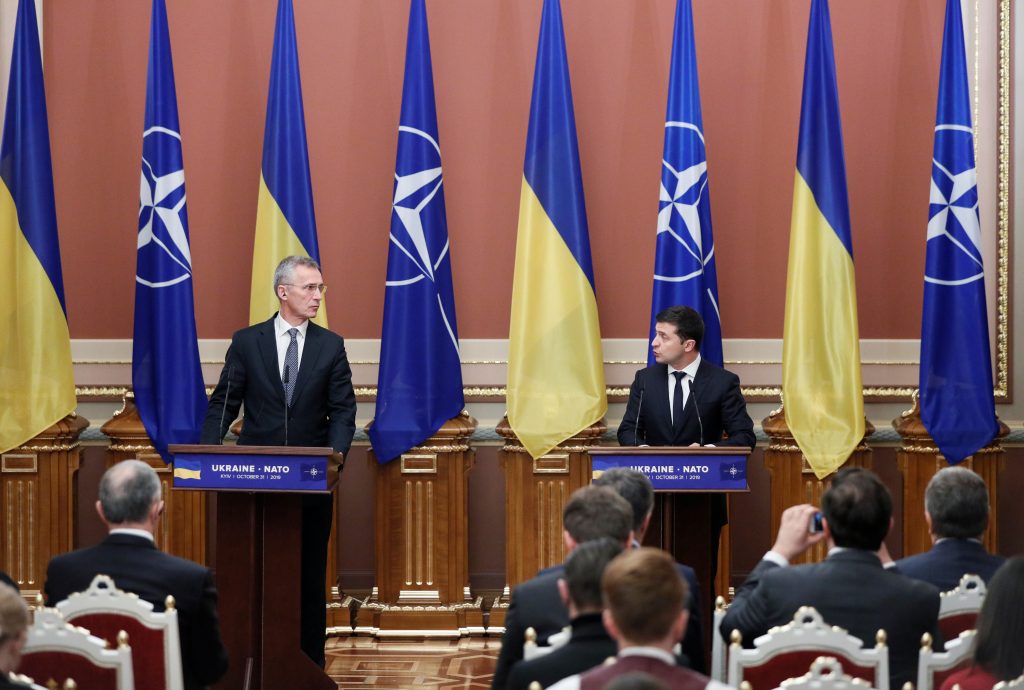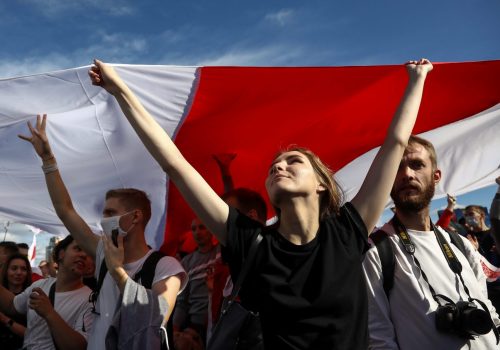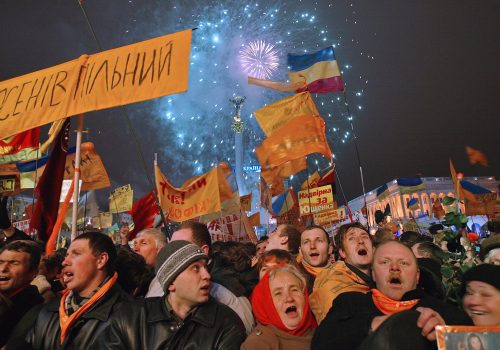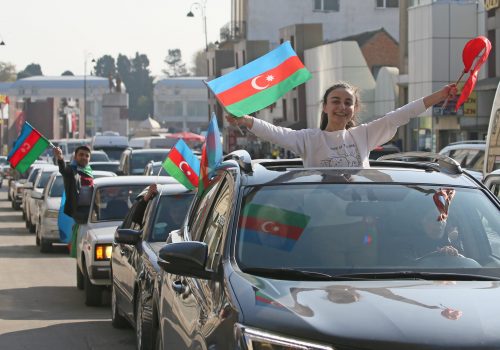A lively debate is currently underway within NATO regarding the direction of the transatlantic alliance over the coming decade. In order to be effective, this NATO 2030 conversation needs to include serious discussion of future ties with Ukraine and Georgia. The two former Soviet republics already feature among NATO’s six Enhanced Opportunities Partners, but closer cooperation has the potential to benefit all parties while contributing to a more secure international environment.
Ukraine and Georgia are integral to the security of the Black Sea region. Both countries have demonstrated that they are capable of making significant contributions to Euro-Atlantic security by participating in NATO-led international missions. In the past year, Ukraine has also played a key role in the response to the coronavirus pandemic. Within the framework of NATO’s SALIS (Strategic Airlift International Solution) program, Ukraine’s fleet of colossal Antonov cargo planes has delivered humanitarian cargo to countries around the world.
In addition to their participation in NATO activities, Georgia and Ukraine also share the unwelcome status of being the primary targets of Russian hybrid warfare. The Kremlin’s preferred hybrid form of hostilities also poses a direct security threat to NATO member states. This includes everything from cyber-attacks and political assassinations to disinformation campaigns and destabilization attempts.
This common Russian threat is a strong argument for deepening cooperation. By strengthening the defense capabilities of Ukraine and Georgia, NATO will also succeed in boosting the security of alliance members and deterring Russia’s aggressive behavior beyond the borders of the former USSR.
Stay updated
As the world watches the Russian invasion of Ukraine unfold, UkraineAlert delivers the best Atlantic Council expert insight and analysis on Ukraine twice a week directly to your inbox.
The most powerful signal NATO could send to Ukraine and Georgia would be to present both countries with Membership Action Plans. This prospect has been under discussion ever since the 2008 NATO summit in Bucharest, but consensus within the alliance remains elusive.
The elephant in the room, of course, is Russia. Moscow made no secret of its bitter opposition to any further expansion of NATO in the former Soviet Union. Indeed, the issue of possible NATO membership was used by the Kremlin to help justify Russia’s military aggression against Ukraine in 2014.
However, any move to deny Kyiv and Tbilisi the prospect of further integration would represent a de facto Russian veto over NATO enlargement. This would rob individual countries of their right to seek membership and strike a blow at one of the alliance’s core principles.
While nobody within NATO is prepared to grant Moscow unofficial veto powers, the ongoing Russian occupation of significant regions of Ukraine and Georgia creates practical obstacles to membership roadmaps for either country. Nevertheless, the arguments for greater integration remain convincing. As NATO policymakers explore the alliance’s priorities for the coming decade, the task now is to identify realistic opportunities to enhance strategic relations with Ukraine and Georgia.
One key issue is the need to continue clearly identifying Russia as the main long-term threat to the security of NATO and its partners. This messaging should include equal emphasis on the hard and soft dimensions of this threat, along with the need to identity a spectrum of responses. With their extensive experience of dealing with Russian hybrid warfare, Ukraine and Georgia can play a prominent role in identifying threats and formulating effective collective responses.
It would also make sense to elaborate on an updated Black Sea security strategy with the participation of Ukraine and Georgia. This could begin with a joint assessment of the security challenges in the region. Moving forward, the alliance should pay special attention to maintaining a sustained Black Sea forward presence featuring integrated maritime, land, and air components.
Ultimately, NATO should seek to bring its Black Sea activities to a level comparable with its presence in the Baltic Sea. This would create balance and eliminate any gaps in the defense of the alliance’s eastern flank. One specific idea worth exploring is the possible establishment of a NATO logistical and training center in Georgia.
Eurasia Center events

At the practical level, NATO should look to enhance interoperability with the Ukrainian and Georgian militaries in the coming years and promote the further adoption of the alliance’s standards through an intensification of joint military exercises, intelligence sharing, and other forms of common activity. By increasing its institutional investment in cooperative security with Ukraine and Georgia, NATO will be able to augment its own collective defense and improve the alliance’s crisis management capabilities.
Moving forward, NATO can demonstrate its continued commitment to an open door policy by developing credible road maps for Ukraine and Georgia that lead towards eventual membership. While it might not be initially possible to establish specific timelines, it is of paramount importance that both countries feature prominently whenever NATO addresses the issue of the alliance’s open door policy or discusses further expansion and potential future members.
A clearer vision of the the road towards NATO would provide a significant boost to the reform agendas in Kyiv and Tbilisi, which would also have the effect of expanding the community of stable and predictable democracies in the region. Joining NATO may not be a realistic short-term objective for either country, but they both have much to offer the alliance and share a range of strategic interests with NATO member states that make further integration mutually desirable.
Alyona Getmanchuk is the Director of the New Europe Center. Irakli Porchkhidze is Senior Vice-President of the Georgian Institute for Strategic Studies. Sergiy Solodkyy is First Deputy Director of the New Europe Center. Their recent analysis of the NATO 2030 Reflection Process and the prospects for Ukrainian and Georgian integration can be downloaded here.
Further reading
The views expressed in UkraineAlert are solely those of the authors and do not necessarily reflect the views of the Atlantic Council, its staff, or its supporters.

The Eurasia Center’s mission is to enhance transatlantic cooperation in promoting stability, democratic values and prosperity in Eurasia, from Eastern Europe and Turkey in the West to the Caucasus, Russia and Central Asia in the East.
Follow us on social media
and support our work
Image: Ukrainian President Volodymyr Zelenskyy and NATO Secretary-General Jens Stoltenberg attend a joint news conference following talks in Kyiv. October 31, 2019. (REUTERS/Gleb Garanich)




